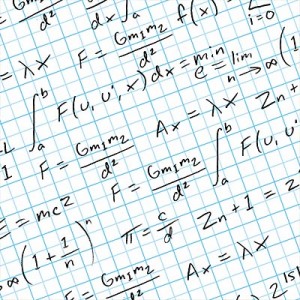Even Scientists Shy Away from Cognitive Load
 We naturally seek out products, services, relationships and interactions that give us net mental energy. We want a psychological uptick that comes from a sense of inclusion, an emotional high, intellectual stimulation, an improved sense of control or a host of other positive mental states. On the other hand, we veer away from things that present complexity, force reflection on difficult emotional matters or otherwise entail cognitive load and threaten to consume more mental energy than they generate.
We naturally seek out products, services, relationships and interactions that give us net mental energy. We want a psychological uptick that comes from a sense of inclusion, an emotional high, intellectual stimulation, an improved sense of control or a host of other positive mental states. On the other hand, we veer away from things that present complexity, force reflection on difficult emotional matters or otherwise entail cognitive load and threaten to consume more mental energy than they generate.
Craving positive mental energy and avoiding cognitive load is as fundamental as seeking pleasure and avoiding pain but is far more comprehensive.
 A recent study of math-heavy scientific articles show that even scientists are doing it. The study found that articles that contained multiple equations were cited 50% less often than articles containing few or no equations. Point is equations carry a heavy cognitive load. And this is not without implications:
A recent study of math-heavy scientific articles show that even scientists are doing it. The study found that articles that contained multiple equations were cited 50% less often than articles containing few or no equations. Point is equations carry a heavy cognitive load. And this is not without implications:
“If new theories are presented in a way that is off-putting to other scientists, then no one will perform the crucial experiments needed to test those theories,”
Communications designed for how minds work carry high knowledge content with low cognitive load. In principle that is what mathematical symbols do but that assumes a fluency in the syntax that journal readers might not have. The journal articles that were part of the study came from ecology and evolution, disciplines that are not as math-heavy as other scientific domains such as physics and chemistry.